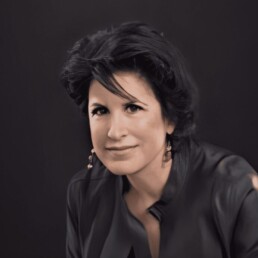Not many directors would make their directorial debut simply after hearing the book read aloud at a book reading, and fewer would decide to make a movie in a non-native language. However, Carol Polakoff did both with her feature film debut, Speak Sunlight. The film tells the life of American writer Alan Jolis as he awakens to a vivid, sensual world and grows up emotionally.
In our exclusive interview, Carol Polakoff discusses the inspiration behind making the film, the many challenges she faced along the way (“Children, animals, and historical period!”), and what the message that she hopes will endure: “Secrets and shame drag our spirits down, and transparency with those you love and who love you is hard to overcome, but the benefits are for a lifetime.”
It’s a pleasure to meet you, Carol! What inspired you to create Speak Sunlight? Was there a specific event or moment that sparked the idea?
Carol Polakoff: Yes, very much so. 22 years ago, I met the author, who became a dear friend on the occasion of a book reading at a Paris bookstore. Within minutes, I was in tears. The story hit me so raw and powerful. I never had such a reaction before (or since) at a book reading.
I made a vow many years ago that I would make this movie, not knowing it would be my directorial debut. A vow that was made as the very young (45) author was diagnosed with cancer and subsequently passed away. I promised him his life would be memorialized on the screen.
Memory and exile are central to the story. How did you explore these themes in the film, particularly in the scenes set in Spain and Paris?
Carol Polakoff: I think that is carried by the characters Maruja and Manolo. They have exiled themselves from a country they loved but did not love them back. Manolo fought in the resistance against Franco, and Maruja was running for more personal reasons She was ashamed about her actions during the war, i.e., getting out of her small town to Pamplona by “stealing” her sister’s fiancee.
How did you collaborate with the cast to bring the nuances of these complex characters to life? Were there specific moments or performances that surprised you during filming?
Carol Polakoff: There are always surprises with great actors, and Carmen and Karra are legends and masters. There was a language barrier (my Spanish was way under par), so we had translators. But, it made the burden of great communication with our hearts and minds more important and rewarding.
How did your process differ as a screenwriter from when you were directing the film? Were there moments during the writing phase that changed once you were on set?
Carol Polakoff: Yes. I had the freedom to improvise and see what worked in real time. Actors often know best what feels authentic for them and their range, and writers should be flexible and not married to their own words. You take on actors to add a layer to the material, not reproduce it.
Filmmaking is always a collaborative process. How did you work with your cinematographer, production designer, and other key team members to create the visual and emotional tone of the film?
Carol Polakoff: I had the best team in the world. The cinematographer and editor were my heroes, having made films with Almodovar, and they helped me more than I can say. The designers, both set and costume, were brilliant, and all of the above were suggested by my producer, who had worked with them on many productions, large and small.
Every film has its challenges. What were some of the biggest obstacles you faced during production, and how did you overcome them?
Carol Polakoff: The language! The pandemic. Fires in our locations and 110-degree weather. And the usual… first-time director, directing in a language other than her own… and the three cardinal rules for a first-timer: Children, animals, and historical period! Not to mention staging the bull run with our bulls and stunts.
What do you hope the audience takes away from the film? Is there a particular feeling or insight you want viewers to experience, especially about the themes of love, loss, and healing?
Carol Polakoff: Yes. I hope they see themselves in Alanito, Maruja, and Manolo and forgive the past and people so that the present and future can be as rich and rewarding as possible. Secrets and shame drag our spirits down, and transparency with those you love and who love you is hard to overcome, but the benefits are for a lifetime. Realize that the time you spend together creates future memories and is the currency you bank on when they are no longer here. Love and loss are part of life. Honor them.


e